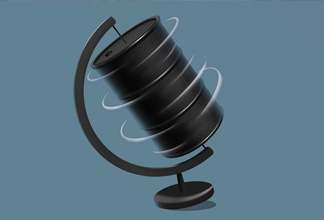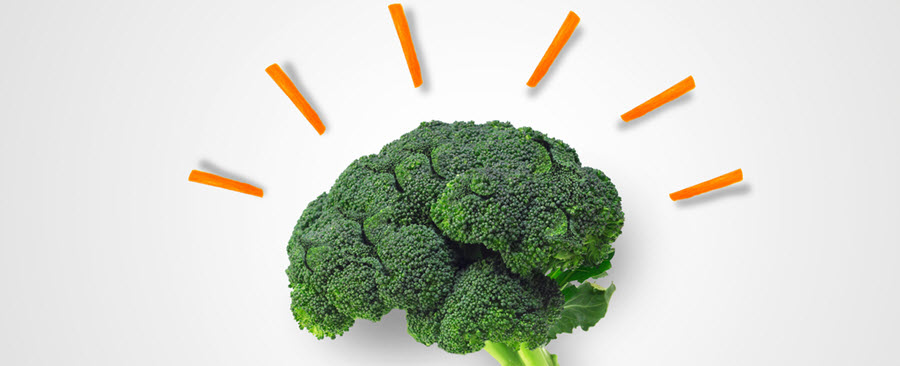Brain Power: A Healthy Decision-Making Routine
Written by Bonny Reichert
Published on November 21, 2017
minute read
Share:
Not everyone considers themselves a morning person, but did you know that your freshest, most creative and best decision-making brain may very well be the one you wake up with?
In a 2014 study, Canadian researchers looking at brain rhythms found notable differences in brain functions through the day, with improved cognitive performance early in the day for older adults. A separate 2015 study by the Montreal Neurological Institute examined scans from nearly 10,000 brains and found the subjects' brains were actually physically bigger in the morning than in the afternoon and the evening.
The trouble is that instead of using our large, well-rested brains to set a focused tone for the day, many of us head straight for our email and social-media accounts.
"Without our even realizing it, social media and the internet in general can affect our thinking and influence our habits, which ultimately could impact on how we spend or save our money..."
Why should that matter? Well, the effect might not just be on our focus and general productivity but, according to the principles of behavioural economics, on our financial decisions as well. A growing field that blends psychology and neuroscience with economics, behavioural economics studies the effects of various factors — psychological, social, cognitive and emotional — on our economic decisions. Without our even realizing it, social media and the internet in general can affect our thinking and influence our habits, which ultimately could impact on how we spend or save our money, evaluate investment choices and tolerate risk.
"The good news is that breaking the habit of distraction is possible and can even be pleasant, once you have a plan."
Research has shown that browsing social media can affect memory. A 2009 study by Dr. Erik Fransén, professor of computer science at Sweden's KTH Royal Institute of Technology, found that scanning social media sites can reduce working memory capacity and inhibit the ability to process information. Fransén explains that maxing out the brain's active states with technology robs it of time to consolidate memories and transfer information.
The good news is that breaking the habit of distraction is possible and can even be pleasant, once you have a plan. I recently read an article in which the author likened surfing the Internet in the morning to filling our bodies with junk food. Instead, he was advocating health food for our brains, especially first thing in the morning. So what, exactly, could be considered health food for the brain? Here are a few ideas:
- Meditation: It seems trendy these days, but meditation is an ancient practice used to train and calm the mind. If meditating for 20-30 minutes seems daunting, consider starting with 5-7 minutes of quiet focus on awareness and breathing and work your way up. Meditation can clear the mind and enhance your ability to focus, two key factors that can help with decision making.
- Keeping a journal: Journaling first thing in the morning can be a great way to clear the mind and set a productive, creative tone for the day. What you write doesn't have to be useful; the point is the process, not the end product.Even to-do lists could qualify here!
- Avoiding that device: While it may not be realistic all the time, try delaying the junk-food-like gratification your phone offers for just one hour after waking up, and see if it makes a difference for you. That doesn't have to mean avoiding technology altogether. Hands-free smart speakers with voice-controlled personal assistants can still read out your morning traffic, weather or news updates to set you up for the day ahead.
- Keep distractions at bay: When you settle down at your computer to start your day, try blocking distractions like email and social media until you've had a chance to do some constructive work with your healthy morning brain. Whether it's getting a jump on the day's to-do list or thoughtfully considering the investment options that are best for you, a clean and pristine "morning mind" can't help but help.
Have a health-food-for-the-brain idea that works for you? Click on the comment button to share your thoughts.
RBC Direct Investing Inc. and Royal Bank of Canada are separate corporate entities which are affiliated. RBC Direct Investing Inc. is a wholly owned subsidiary of Royal Bank of Canada and is a Member of the Investment Industry Regulatory Organization of Canada and the Canadian Investor Protection Fund. Royal Bank of Canada and certain of its issuers are related to RBC Direct Investing Inc. RBC Direct Investing Inc. does not provide investment advice or recommendations regarding the purchase or sale of any securities. Investors are responsible for their own investment decisions. RBC Direct Investing is a business name used by RBC Direct Investing Inc. ® / ™ Trademark(s) of Royal Bank of Canada. RBC and Royal Bank are registered trademarks of Royal Bank of Canada. Used under licence.
© Royal Bank of Canada 2018. All rights reserved.
The views and opinions expressed in this publication are for your general interest and do not necessarily reflect the views and opinions of RBC Direct Investing. Furthermore, the products, services and securities referred to in this publication are only available in Canada and other jurisdictions where they may be legally offered for sale. If you are not currently resident of Canada, you should not access the information available on the RBC Direct Investing website.
Explore More

The Hidden Costs of Being Single
How single Canadians can build wealth on their own terms
minute read

What Investors Can Learn from Hockey Star and RBC Olympian Sarah Nurse
Nurse's path to the podium reveals how preparation, planning and practice can turn potential into a golden opportunity
minute read

Crude Questions? A Look at Canada’s Oil Economy
What you need to know about Canada’s oil industry
minute read
Inspired Investor brings you personal stories, timely information and expert insights to empower your investment decisions. Visit About Us to find out more.







